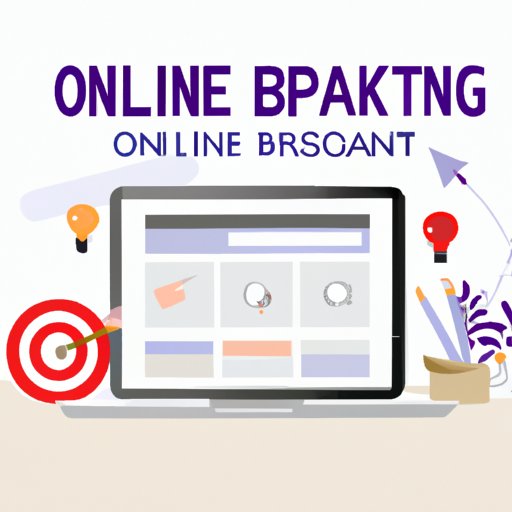Introduction
Starting an online business is an exciting endeavor that can provide you with financial freedom, flexibility, and the opportunity to work from anywhere. An online business is any type of business that has an online presence and utilizes the internet to generate sales. This could include selling products or services, creating digital content, or offering consulting services.
The benefits of starting an online business are numerous. You will have the potential to reach a global audience and create a passive income stream that can be scaled up over time. Additionally, you will have more control over your work schedule and lifestyle.

Research and Identify Potential Online Business Models
The first step in starting an online business is to determine which business model best fits your interests, skills, and resources. Consider what type of business you would like to create and how much time and money you are willing to invest. Research different types of online businesses and analyze the competition in each field. Take into account the amount of effort, resources, and capital needed to start each type of business and decide which one is the right fit for you.

Develop a Business Plan and Financial Projections
Once you have identified a business model, you will need to develop a business plan and financial projections. This should include the purpose and goals of your business, a realistic budget, and financial projections for at least the next three years. Your business plan should also include a detailed marketing strategy and a timeline for when certain goals should be achieved.
Investigate the Legal Requirements for Starting an Online Business
Before you launch your online business, it is important to understand the legal requirements in your area. Research local, state, and federal regulations to make sure you are compliant. Obtain necessary permits and licenses and understand tax requirements for your business. Working with a lawyer or accountant can help you ensure that you are meeting all legal requirements.
Secure Funding for Your Startup
Securing funding is an essential part of starting an online business. Explore financing options such as business loans, crowdfunding, and angel investors. Create a compelling pitch to present to potential investors and develop relationships with them. Make sure to understand the terms and conditions of any loan or investment before signing any agreements.
Choose an Appropriate eCommerce Platform
An eCommerce platform is the foundation of your online business. Choose one that offers features, pricing, and scalability that meets your needs. Evaluate available payment processing options and find reliable customer support. Consider the user experience when selecting an eCommerce platform, as this will be the foundation of your business.
Design a Website, Create Content, and Market Your Business Online
Your website is the face of your business and should reflect your brand. Select a website design and functionality that meets your needs. Develop content that resonates with customers and utilize SEO, digital marketing, and social media to promote your business. Invest in quality images and videos to enhance your website and make it stand out from the competition.

Monitor Progress and Adjust Strategies as Needed
Once you have launched your online business, it is important to track key performance indicators and analyze customer feedback. This will help you adjust your strategies as needed to optimize results. Monitor progress regularly and make changes as necessary to ensure success.
Conclusion
Starting an online business can be a rewarding experience. To get started, research and identify potential online business models, develop a business plan and financial projections, investigate legal requirements, secure funding, choose an appropriate eCommerce platform, design a website, create content, and market your business online. Finally, monitor progress and adjust strategies as needed to ensure success.
(Note: Is this article not meeting your expectations? Do you have knowledge or insights to share? Unlock new opportunities and expand your reach by joining our authors team. Click Registration to join us and share your expertise with our readers.)
